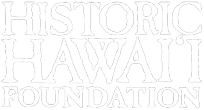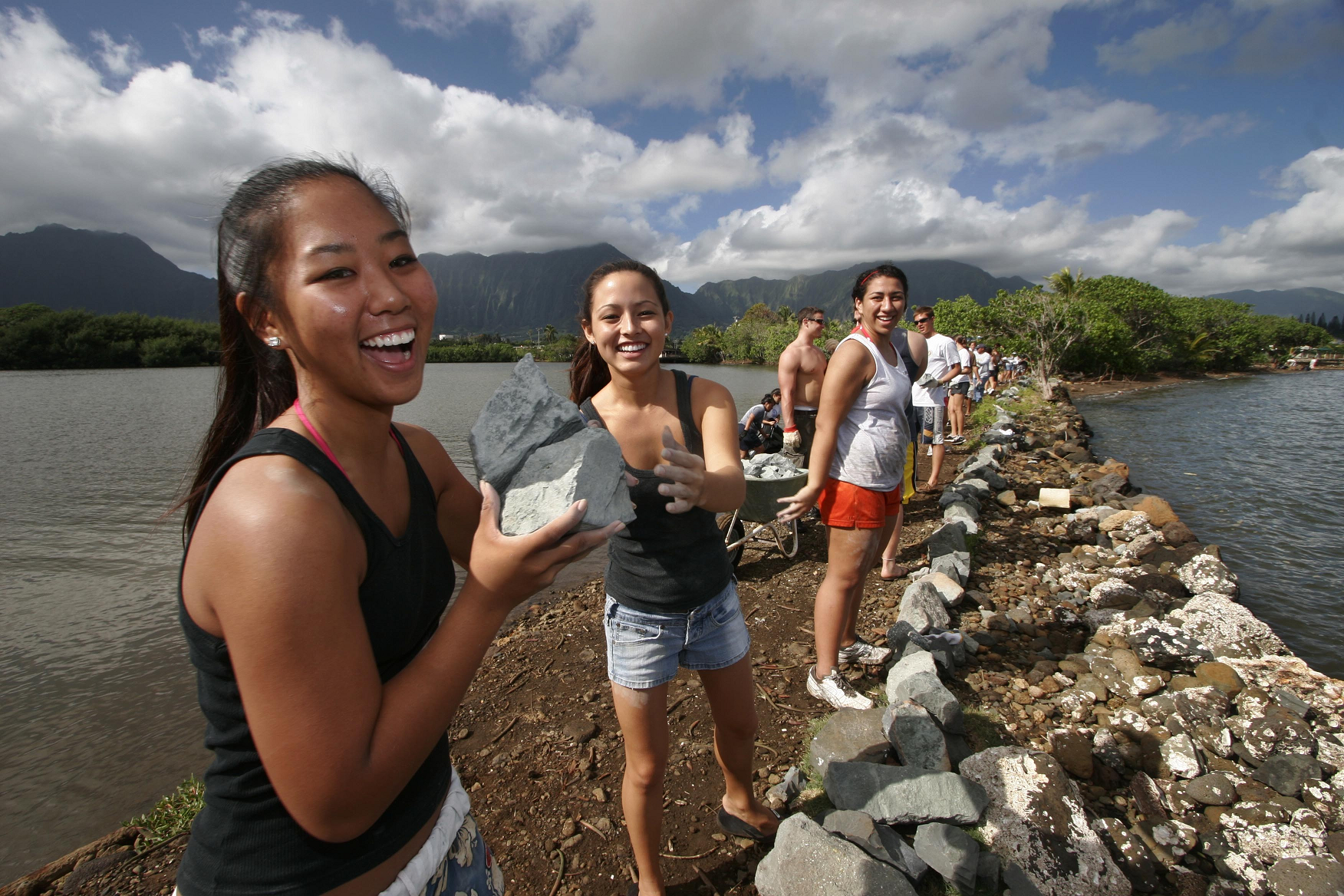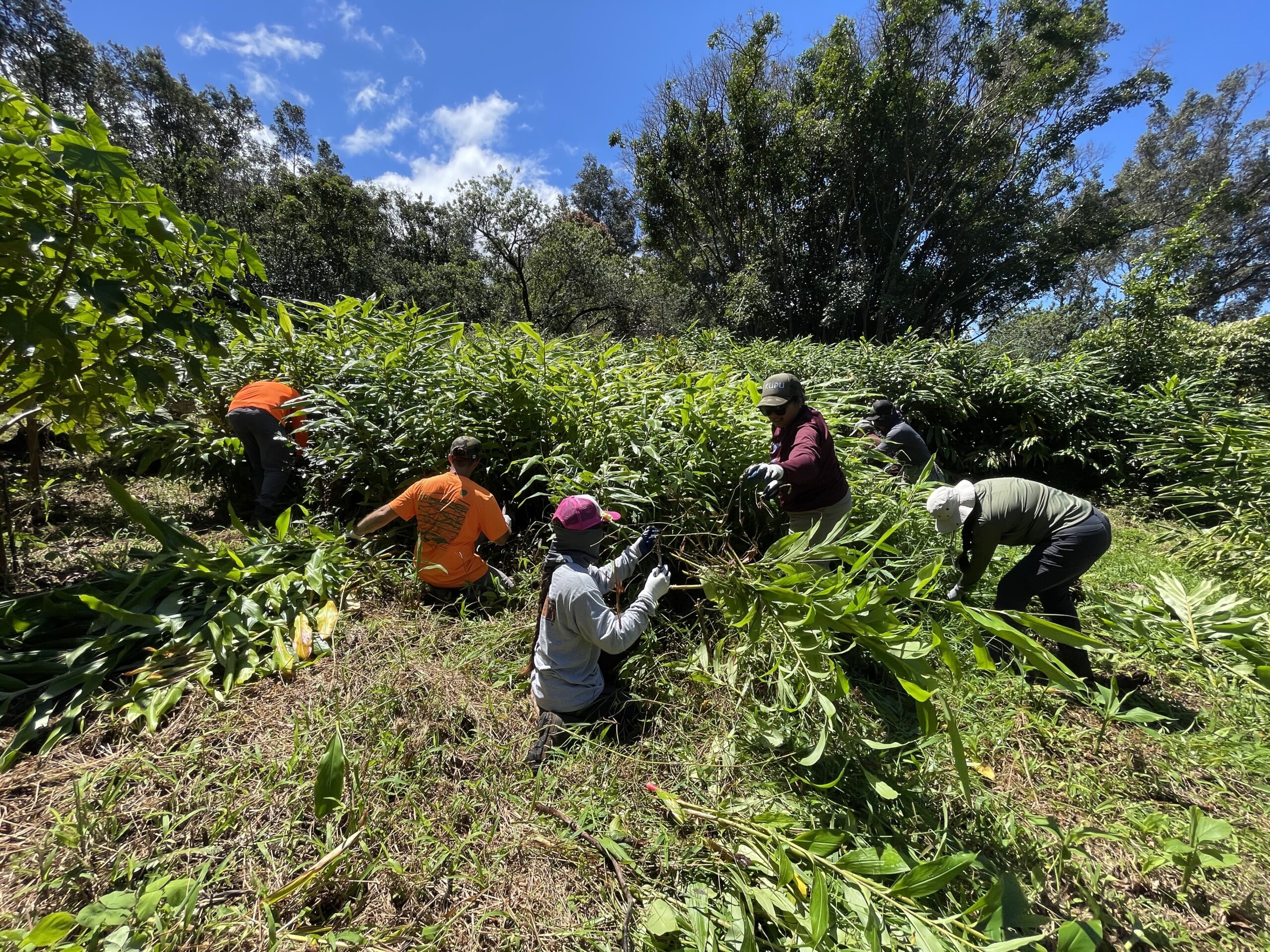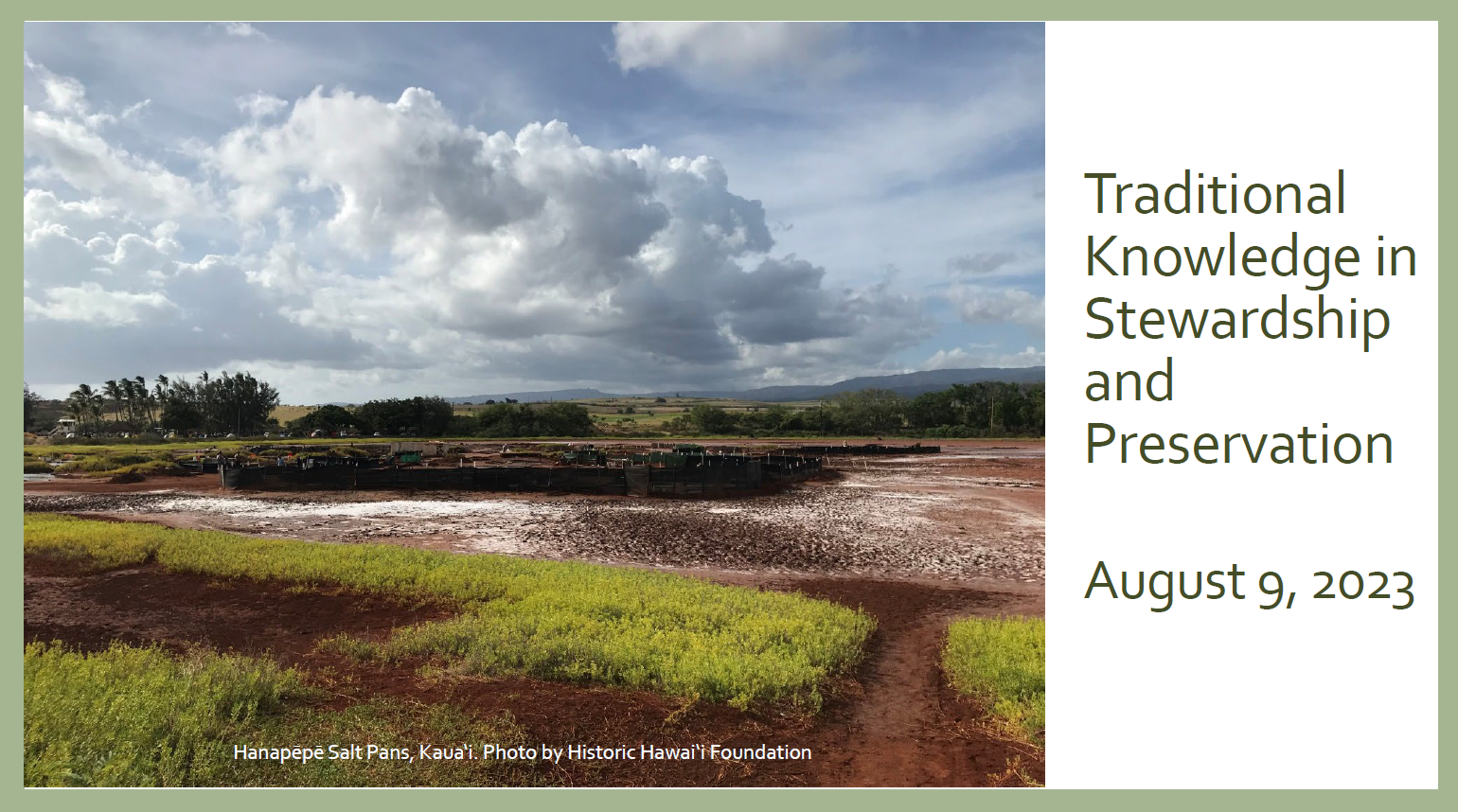Hawai‘i Preservation in Practice Webinar:
Traditional Knowledge in Stewardship and Preservation
Historic Hawai‘i Foundation, in partnership with the Department of the Interior’s National Park Service, will offer a free webinar on integrating indigenous knowledge into planning and management strategies for historic properties and other cultural resources.
Date: Wednesday, August 9, 2023
Time: 10:00 a.m. – 12:00 p.m. HST
Cost: Free
Virtual Webinar via ZOOM
VIEW THE RECORDING AND PRESENTATION BELOW
The information and summative historical and cultural ecology contained within Indigenous languages, practices, values, place names, songs, and stories hold data and knowledge that are relevant today.
From “What is ‘Indigenous Knowledge’ And Why Does It Matter? Integrating Ancestral Wisdom and Approaches into Federal Decision-Making”, The White House, 2022.
The webinar provides training to members of the public, private, nonprofit or government sectors who own, manage, steward or are interested in preserving historic cultural and built sites.
Traditional Knowledge in Stewardship and Preservation
Date: Wednesday, August 9, 2023
Time: 10:00 a.m. – 12:00 p.m.
ABOUT THE COURSE
The webinar presents an introduction to approaches for integrating indigenous knowledge into planning and management strategies for historic properties and other cultural resources associated with traditions, cultural practices and other areas of significance for Native Hawaiians. These concepts will be explored through three recent case studies showcasing co-stewardship models and perpetuating traditional knowledge across generations for stewardship and preservation outcomes:
- Ulupō Heiau State Historic Site in Kailua, O‘ahu
- Waikalua Loko I‘a in Kāne‘ohe, O‘ahu
- Kahalu‘u Kūāhewa, a segment of the Kona Field System, Kahalu‘u, Hawai‘i Island
The program will conclude with a panel discussion exploring project impacts, challenges, process and lessons learned. Participants are encouraged to submit questions.
From: “What is ‘Indigenous Knowledge’ And Why Does It Matter? Integrating Ancestral Wisdom and Approaches into Federal Decision-Making
“Indigenous Knowledge – also referred to as Traditional Knowledge or Traditional Ecological Knowledge – is a body of observations, oral and written knowledge, innovations, practices, and beliefs that promote sustainability and the responsible stewardship of cultural and natural resources through relationships between humans and their landscapes. Indigenous Knowledge cannot be separated from the people inextricably connected to that knowledge. It applies to phenomena across biological, physical, social, cultural, and spiritual systems.”
LEARNING OBJECTIVES:
Through the course, participants will learn:
- Concepts that inform Native Hawaiian perspectives on the nature-culture connection.
- Definitions of traditional knowledge, indigenous knowledge and traditional ecological knowledge.
- Guidelines and best practices for integrating traditional knowledge into stewardship and preservation plans for cultural resources and historic properties.
- Perspectives and advice from practitioners from recent projects and examples.
WHO SHOULD ATTEND?
• Public, private and nonprofit entities that own or manage historic and potentially historic properties in Hawai‘i;
• Government agencies and elected officials responsible for the protection of historic properties;
• Design professionals, including planners, architects, engineers, landscape architects, historians and architectural historians;
• Community organizations or individuals with stewardship responsibilities for historic properties;
• Other members of the public or organizations interested in preserving historic sites.
This program is part of the Native Hawaiian Organization Stewardship Program, a five-year initiative between Historic Hawai‘i Foundation and the U.S. Department of the Interior’s Office of Native Hawaiian Relations and the National Park Service, with funding from the U.S. DOI Bureau of Indian Affairs. The program goals are to build capacity of NHOs towards historic preservation and stewardship with the goal of ensuring that their traditional cultural stories and places are being documented, preserved and shared in an appropriate manner with visitors and residents. The program is also supported by a Kūkulu Ola grant from the Hawai‘i Tourism Authority.
PRESENTERS
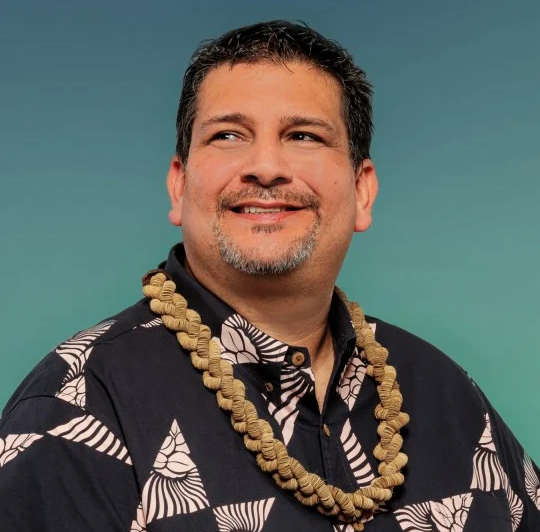
Kawika McKeague is a Principal and Director of Cultural Planning at G70, where his background, experience and passion have resulted in a unique and knowledgeable approach to land use planning and indigenous responses to design for over 20 years. McKeague’s past work experience has included serving as the Senior Cultural Resource Manager for Kamehameha Schools and as a cultural specialist with the Bernice Pauahi Bishop Museum. McKeague holds a master’s degree in urban and regional planning and graduate certification in historic preservation from the University of Hawai‘i at Mānoa.
McKeague is a Native Hawaiian rights advocate trained as a ho‘opa‘a and ‘ōlapa under Kumu Hula Victoria Holt Takamine and a kīhōʻalu artist by the late Cyril Lani Pahinui. He is the board president of PAʻI Foundation, which preserves and perpetuates Native Hawaiian arts and cultural traditions for future generations. He is a board member of the PAC Foundation, which directs resources to support Polynesian arts and culture. McKeague is also part of a volunteer design team assisting with the ongoing planning and development of Puʻuhonua o Waiʻanae, a contemporary refuge rooted in traditional Hawaiian values and kuleana. His past community service has included two terms on the O‘ahu Island Burial Council and as a national design juror for the National Native American Veteran’s Memorial at the Smithsonian National Museum of the American Indian.
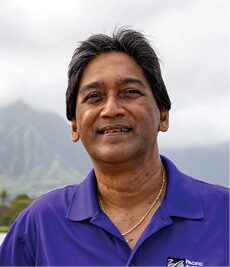
Herb Lee, Jr. has been the Executive Director of the Pacific American Foundation (PAF) since 2005 and in 2018 appointed as President and Chief Executive Officer. PAF has been recognized as one of the leading non-profits in the development and training of rigorous culture-based education programs for both Native Hawaiians and non-Hawaiian students. In 2011 Lee founded the Hawaii Institute of Knowledge and Innovation (HIKI) under PAF. In 2013, PAF was selected as one of the “Anchor Agencies” to help lead the transformation of the Castle Complex of schools, one of the first in Hawaii’s Public Education system.
Lee is a Native Hawaiian that has led multiple and highly successful gifted and talented youth leadership programs, career planning and development, STEM education and culture-based curriculum projects including the award winning “Kahea Loko and the Aloha ‘Āina” projects. His programs have trained over 6,000 teachers statewide in over 150 schools and benefited over 100,000 plus students families at the Waikalua Loko fishpond alone spanning grade levels P to 20.
Lee has 32 years of experience as a community involvement specialist and has been a recording artist, Hawaiian musician, and a cultural practitioner for 43 years. He is one of the founders of the Waikalua Loko Fishpond Preservation Society in Kaneohe, O’ahu, a non-profit organization whose mission is education through the protection, preservation, restoration and perpetual stewardship of an ancient (400 year old) cultural resource, now owned by PAF since 2013.
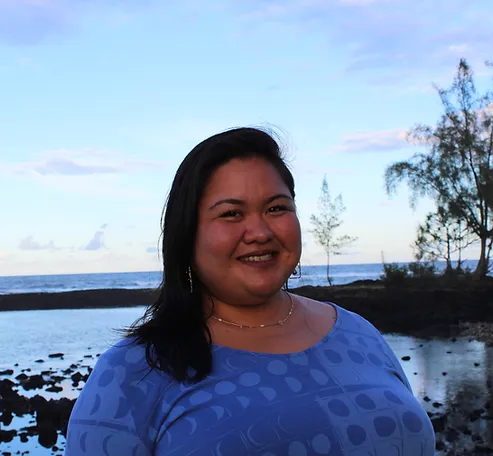
Ku‘upua Mossman is the Legal Specialist and Kaliʻuokapaʻakai Collective Coordinator for Huliaupa‘a. She is from Kalauao, ‘Ewa, Oʻahu and currently resides in Kalama Valley. She received dual Bachelors of Arts degrees in Environmental Studies and Hawaiian Studies from the University of Hawaiʻi at Hilo and in 2019, graduated from the William S. Richardson School of Law where she earned Environmental and Native Hawaiian Law certificates in addition to her Juris Doctorate. During law school, Kuʻupua focused her legal education on social justice issues in Hawaiʻi, participating in Native Hawaiian law trainings across the pae ʻāina and working on wrongful conviction cases with the Hawaiʻi Innocence Project. In addition to her studies, she worked as a Pre-Law Advisor, externed at the Hawai’i Supreme Court and the Office of the Public Defender, and clerked for Senator Mazie Hirono in Washington D.C. Most recently, Kuʻupua worked as a Post-J.D. Legal Fellow for Ka Huli Ao Center for Excellence in Native Hawaiian Law. More specifically, her placement was with the State of Hawaiʻi Department of Land and Natural Resources’ Historic Preservation Division where she worked to amend the division’s administrative rules, assess historic preservation violations, and led the legal training sessions for the Island Burial Councils.
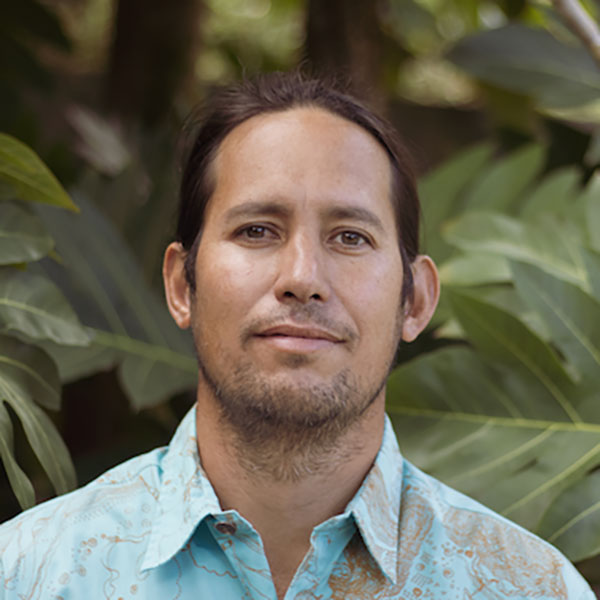
Kaleo Wong is Executive Director of Kauluakalana. He holds a Bachelor of Arts in Hawaiian Studies and a Master of Arts in Hawaiian Language from the University of Hawai‘i at Mānoa. He is a Hōkūleʻa navigator, has worked as a Conservation Biologist in Hawaiʻi for 15 years, and has developed, implemented, and grown all the ʻāina programing at Ulupō since 2015. Kauluakalana is a community-based, Native Hawaiian non-profit organization in Kailua, Oʻahu. Kauluakalana’s mission is “to restore and grow healthy relationships between people and place through the aloha ‘āina practices of retelling Kailua-specific stories, replanting and eating ancestral foods, and caring for the sacred sites, lands, and waters of our beloved ahupua‘a of Kailua. Kauluakalana uses a three-pronged approach of mo‘olelo (history and tradition), hana (work) and hānai (foster, to nourish) to involve community members in activities to restore and grown healthy kānaka-‘āina relationships (human-land relationships) that provide for authentic, respectful and culturally-grounded visitation.
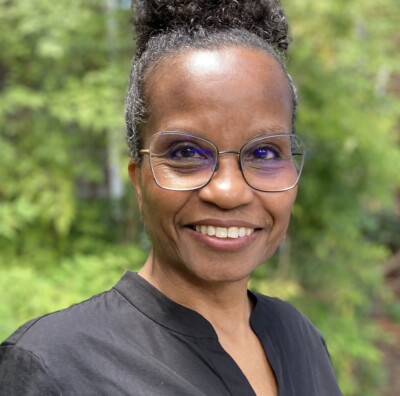
Dr. Elaine Jackson-Retondo, Region Preservation Partnerships and History Programs Manager, Interior Regions 8, 9, 10 and 12 in the National Park Service Pacific West Regional Office, earned her Doctorate in Architectural History and Masters of Architecture from the University of California, Berkeley and her Bachelor of Architecture from the University of Notre Dame in South Bend, Indiana. She has worked in the National Park Service since 2002.
Jackson-Retondo’s current and past work has included the National Park Service’s American Latino Heritage Initiative, Asian American Pacific Islander Initiative, Japanese American confinement during World War II, Cesar Chavez and the Farm-worker Movement, the National Park Service’s Mission 66 Program, and 19th century carceral institutional landscapes.
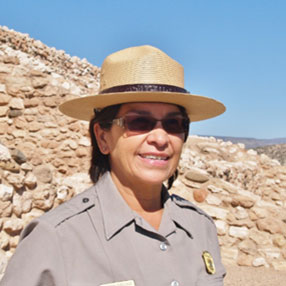
Dorothy FireCloud is the Native American Affairs Liaison and Assistant to the Director for the U.S. National Park Service. The NPS Office of Native American Affairs provides guidance and support to NPS field and program managers to strengthen relationships with Native American, Alaska Native, Native Hawaiian, and other indigenous communities. Dorothy FireCloud is a member of the Rosebud Sioux Tribe. She has a Juris Doctorate from the New Mexico School of Law and has been a member of the New Mexico State Bar since 1991. She previously served as the superintendent at Montezuma Castle National Monument and Tuzigoot National Monument in Arizona and as superintendent of Devils Tower National Monument in Wyoming. Prior to joining the NPS in 2006, FireCloud worked on water rights with the Bureau of Indian Affairs and held several positions with the U.S. Forest Service, including acting district ranger at Tongass National Forest, acting deputy forest supervisor at Black Hills National Forest, and acting director for the tribal relations program in Washington D.C. She served as the USFS Southwest tribal program manager, and as the team leader of the National Implementation Team on tribal relations that developed an extensive report on programs and policies to fulfill USFS trust responsibilities.
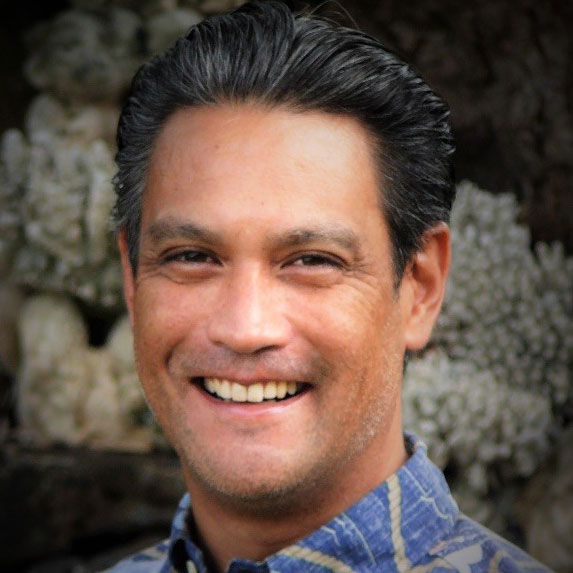
Stanton Enomoto is the U.S. Department of the Interior Office of Native Hawaiian Relations’ Senior Program Director for Native Hawaiians. He received his BA in Geology and Environmental Studies from Macalester College in St. Paul, Minnesota. Enomoto is an experienced professional with subject matter expertise related to preservation of traditional cultural properties and Native Hawaiian protocols. Previously, Enomoto served as the Climate Change Cultural Adaptation Coordinator for the National Park Service (NPS). He was the NPS representative to the Pacific Islands Climate Change Cooperative (PICCC) and provides cultural resource adaptation planning and implementation support to the cooperative’s member organizations in Hawaii and the U.S.-affiliated states in the Pacific. Prior to joining the federal government, Enomoto spent 18 years working for the State of Hawaii including as a planner with the Hawai‘i Community Development Authority and a term as the Chief Operating Officer for the Office of Hawaiian Affairs.
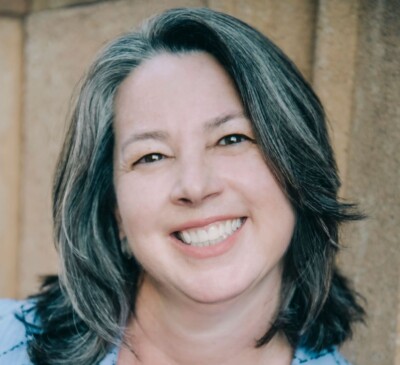
Kiersten Faulkner is the chief executive of Historic Hawai‘i Foundation and oversees all aspects of its preservation programs, strategic planning, business lines and operational matters. She holds a Master of Arts in Urban and Environmental Policy from Tufts University and is a member of the College of Fellows of the American Institute of Certified Planners (FAICP).

